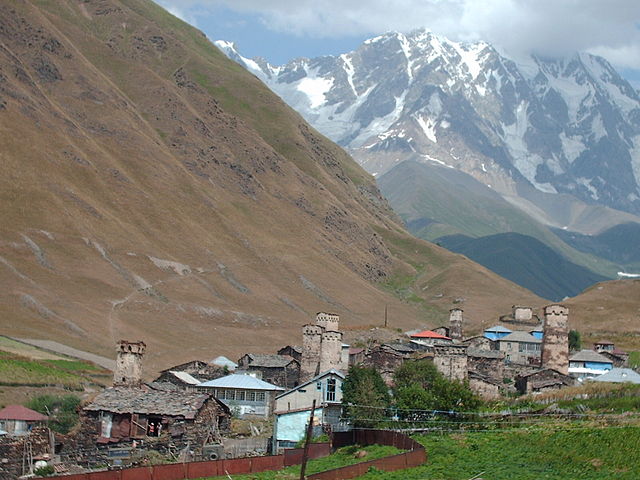In traditional Albanian culture, Gjakmarrja or hakmarrja ("revenge") is the social obligation to kill an offender or a member of their family in order to salvage one's honor. This practice is generally seen as in line with the social code known as the Canon of Lekë Dukagjini or simply the Kanun. The code was originally a "a non-religious code that was used by Muslims and Christians alike."
A fortified tower (kullë) used as a safe haven for men involved in a blood feud. Theth, northern Albania.
A feud, also known in more extreme cases as a blood feud, vendetta, faida, clan war, gang war, private war, or mob war, is a long-running argument or fight, often between social groups of people, especially families or clans. Feuds begin because one party perceives itself to have been attacked, insulted, injured, or otherwise wronged by another. Intense feelings of resentment trigger an initial retribution, which causes the other party to feel greatly aggrieved and vengeful. The dispute is subsequently fuelled by a long-running cycle of retaliatory violence. This continual cycle of provocation and retaliation usually makes it extremely difficult to end the feud peacefully. Feuds can persist for generations and may result in extreme acts of violence. They can be interpreted as an extreme outgrowth of social relations based in family honor. A mob war is a time when two or more rival families begin open warfare with one another, destroying each other's businesses and assassinating family members. Mob wars are generally disastrous for all concerned, and can lead to the rise or fall of a family.

Ponte dei Pugni ('Bridge of Fists') in Venice was used for an annual fist fight competition between the inhabitants of different zones of the city.
Vatheia, a typical Maniot village famous for its towers
The defensive towers built by feuding clans of Svaneti, in the Caucasus mountains
The culture of inter-tribal warfare has long been present in New Guinea.





